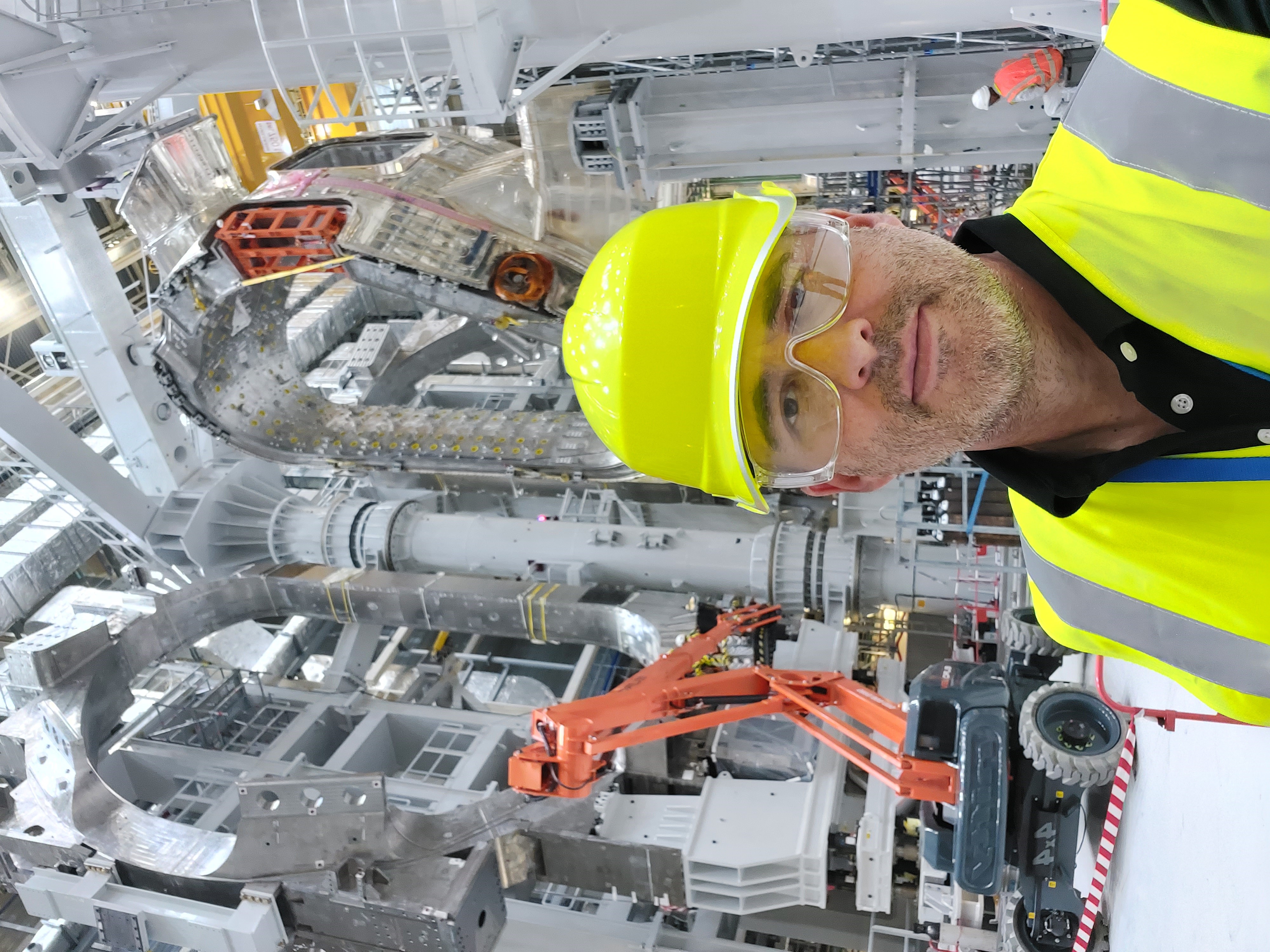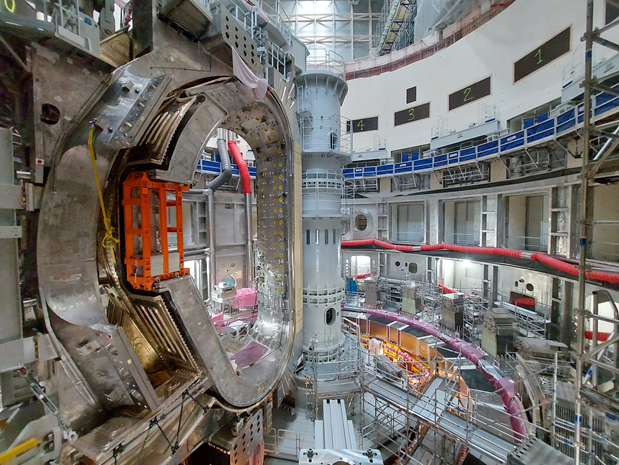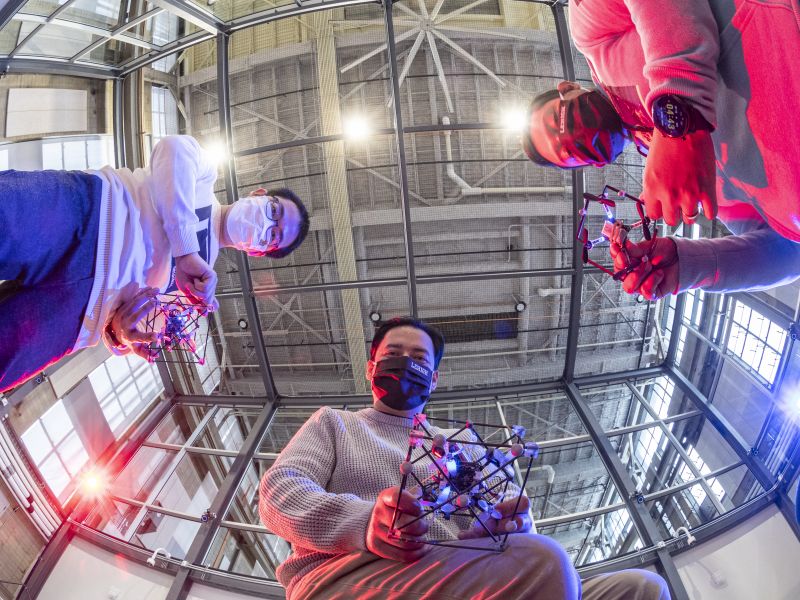Mechanical Systems Research
Our mechanical systems research includes dynamics and control of systems ranging from flying drones and ground-based autonomous vehicles to fusion reactors. Browse below to learn more about our faculty-led research labs in mechanical systems.
Prof. Nader Motee’s team is developing foundational tools to analyze and design network of robots for real-time visual sensing, learning, decision making, and perception. They design and verify learning and control algorithms for autonomous robots including drones in the interdisciplinary Autonomous and Intelligent Robotics Laboratory (AIR Lab) in Building C of Lehigh’s Mountaintop Campus. These state-of-the art facilities support numerous robotics projects led by faculty in the Institute for Data, Intelligent Systems, and Computation (I-DISC) at Lehigh.
Research updates and lab news can be found on Twitter @Lehigh_AirLab and the DCDS lab webpage.
Graduate Student Placements: Northeastern University as Assistant Professor, PARC Xerox, Apple, PARC Xerox, Lockheed Martin, SpaceX
Read more about Prof. Motee and his research on real-time perception and planning in a network of agents.
The research work within the Plasma Control Laboratory led by Prof. Eugenio Schuster lies at the intersection of nuclear fusion, plasma physics, control mathematics, machine learning, optimization, and computational methods. Nuclear fusion, which powers the Sun and enables life on Earth, arises as an economically affordable, environmentally sustainable, and politically acceptable source of energy. The research activity focuses on understanding, modeling, stabilizing, and controlling the plasma (an ionized hydrogenic gas at around 100 million degrees) sustaining the fusion reactions in magnetically confined devices such as tokamaks. Supported by the U.S. Department of Energy, members of the laboratory conduct collaborative work at different nuclear-fusion facilities and laboratories in the U.S. (DIII-D (San Diego, CA), NSTX-U (Princeton, NJ)) and around the world (KSTAR (South Korea), EAST (China), ITER (France)).


Graduate Student Placements: General Atomics/DIII-D National Fusion Facility, Princeton Plasma Physics Laboratory, General Electric, Corning Inc., Shanghai Institute of Applied Physics (SINAP), Shenzhen Institute of Advanced Technology (SIAT), Zhejiang University, U.S. Army Research Laboratory, Lockheed Martin, General Dynamics, Ingersoll Rand, Agilent Technologies.
Read more about Prof. Schuster.
Prof. Subhrajit Bhattacharya’s lab focuses on motion planning and control of autonomous, intelligent systems. They apply topological and geometric methods (algebraic/differential topology, differential/discrete geometry) to the design and analysis of algorithms in robot motion planning, coverage, sensor networks, distributed systems and control. They also perform collaborative research on diverse topics involving control theory, graph theory, topology, geometry and their applications to the design of intelligent, autonomous systems.
Read more about Prof. Bhattacharya and his research on real-time perception and planning in a network of agents.
Prof. Cristian-Ioan Vasile’s research goal is enabling autonomy in robotic systems. The Explainable Robotics Lab (ERL) focuses on automated control synthesis and decision making, explainability, scalability, and learning, with an emphasis on deployment on physical robots. They leverage methods from motion planning, formal methods, automata-theory, machine learning, and control engineering. Some of the problems they are interested in include: automated synthesis and decision making under uncertainty, planning with robust and relaxed temporal logic specifications, large-scale planning based on composition and contracts, planning for large fleets of robots, reinforcement learning with temporal logic goals for continuous domains, and temporal logic inference from time-series data. The group is part of the Autonomous and Intelligent Robotics Laboratory (AIR Lab) located in Building C of Lehigh’s Mountaintop Campus. These state-of-the art facilities support numerous robotics projects led by faculty in the Institute for Data, Intelligent Systems, and Computation (I-DISC) at Lehigh.
Research updates and lab news can be found on Twitter @inerl_erl.
Read more about Prof. Vasile.
Faculty Members



